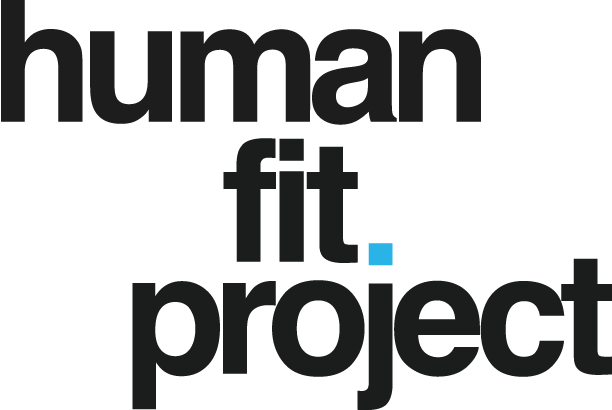As we enter our 40s, many of us men start to notice changes in our bodies and we might be thinking about ways to increase testosterone levels. We might feel less energetic, struggle to maintain muscle mass, or experience a dip in our libido. Often, these changes are linked to a gradual decline, but here’s the good news: we’re not powerless in this situation. Let’s explore how we can naturally boost our testosterone and continue feeling our best well into our 40s and beyond.
Related: The over-40 workout plan to build lean muscle
Also related: The 6 most important blood test biomarkers if you’re over 40
Understanding Our Testosterone Decline
First, let’s get a handle on what’s happening in our bodies. Testosterone, our primary male sex hormone, plays a crucial role in various bodily functions. According to Harvard Medical School research, our testosterone levels typically start to drop by 1–2% annually from our early 40s onward. This decline can affect everything from our physical strength to our mental clarity and sexual function.
Signs We Might Have Low Testosterone
We should be aware of these common symptoms of low testosterone:
- Feeling constantly tired and less motivated
- Noticing a decrease in muscle mass and an increase in body fat
- Experiencing reduced libido and sexual function
- Dealing with mood changes and irritability
- Having difficulty concentrating
If we’re experiencing several of these symptoms, it’s worthing looking into our T levels.
Natural Ways We Can Increase Testosterone Levels
1. Let’s Lift Weight & Go Hard
One of the best things we can do for our testosterone levels is to exercise regularly. Resistance training and high-intensity interval training (HIIT) have been shown to be particularly effective. A 2015 study found that increased physical activity was more beneficial than calorie restriction for increasing testosterone levels in men with obesity. So, let’s dust off those weights or hit the gym – our bodies will thank us.
2. Optimizing Our Diet
We are what we eat, and this applies to our hormone levels too. Let’s focus on incorporating these testosterone-friendly foods into our diets:
- Oily fish like salmon, tuna, and sardines: They’re rich in zinc, vitamin D, and protein
- Eggs: They contain cholesterol, which is a precursor for testosterone
- Dark, leafy greens: These are an excellent source of magnesium
- Extra virgin olive oil: A 2013 study found it could boost testosterone levels over three weeks
- Red meat: It’s a good source of zinc and vitamin D
3. Maintaining a Healthy Weight
If we’re carrying extra weight, losing it can help increase our testosterone. A meta-analysis published in the European Journal of Endocrinology in 2013 found that weight loss is associated with a significant increase in both bound and unbound testosterone levels in men. Let’s make it a goal to reach and maintain a healthy weight.
4. Managing Our Stress
We all deal with stress, but chronic stress can lead to elevated cortisol levels, which can interfere with our testosterone production. Let’s incorporate stress-management techniques like meditation, yoga, or deep breathing exercises into our daily routines.
5. Prioritizing Quality Sleep
Getting enough quality sleep is crucial for our testosterone production. We should aim for 7-9 hours of sleep per night. A study in the Journal of the American Medical Association found that sleeping less than 5 hours per night was associated with significantly lower testosterone levels in men. Let’s make sleep a priority
Related: 10 proven techniques for achieving quality sleep
6. Considering Natural Supplements
Several natural supplements have shown promise in supporting testosterone levels:
- Vitamin D: A University of Graz study found that when healthy overweight men were given vitamin D supplements daily for one year, their testosterone levels increased.
- Magnesium: A study of taekwondo athletes and sedentary men found that magnesium supplementation increased testosterone levels in both groups.
- Ashwagandha: Recent studies have shown its potential to increase testosterone levels and improve male fertility.
- Zinc: This essential mineral plays a crucial role in testosterone production. Let’s include zinc-rich foods like oysters, beef, and pumpkin seeds in our diets.
- Fenugreek: A meta-analysis published in 2020. examined the effect of fenugreek extract supplements on testosterone levels in males. The analysis concluded that fenugreek extract supplementation has a significant effect on total serum testosterone levels in men.
Lifestyle Changes for Optimal Testosterone
7. Reducing Our Alcohol Consumption
While we might enjoy a drink or two, excessive alcohol intake can negatively impact our testosterone levels. Let’s practice moderation to maintain healthy hormone levels.
8. Minimizing Exposure to Endocrine Disruptors
Certain chemicals found in plastics and personal care products can interfere with our hormone production. We can opt for natural products when possible and avoid heating food in plastic containers.
9. Staying Hydrated
Proper hydration is essential for our overall health and can support optimal hormone production. Let’s aim for at least 8 glasses of water a day.
10. When We Might Need Medical Intervention
*While natural methods can be effective, some of us may require medical intervention. If we’re experiencing persistent symptoms of low testosterone, it’s important to consult with a healthcare professional. They may recommend testosterone replacement therapy (TRT) if appropriate. Recent research has shown promising results for TRT in improving body composition. A 2022 study published in Frontiers in Endocrinology found that an increase in testosterone helps improve body composition, even in men with testosterone levels near the lower end of normal. This suggests that men could potentially benefit from TRT even if their testosterone levels aren’t as low as traditionally defined by medical standards.
*If you’re considering TRT, be sure to speak with your doctor beforehand.
Wrapping It Up
As we journey through our 40s and beyond, maintaining healthy testosterone levels is achievable through a combination of lifestyle changes, proper nutrition, and targeted supplementation. By incorporating regular exercise, optimizing our diets, managing stress, and ensuring quality sleep, we can support our body and increase testosterone levels. Remember, what works best can vary from person to person. It’s essential that we listen to our bodies and work with healthcare professionals to find the right approach for each of us.

